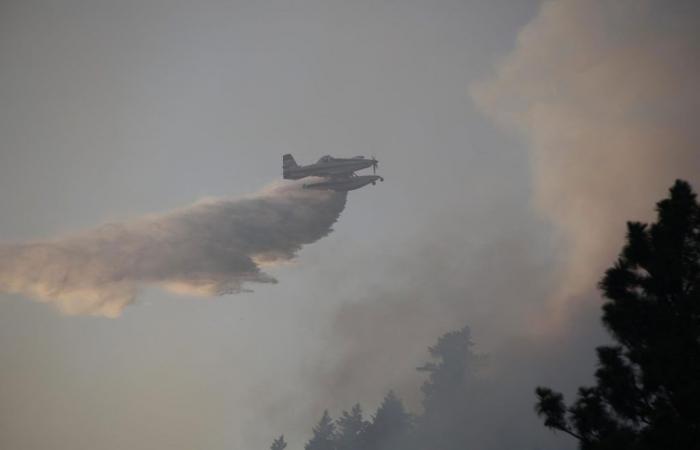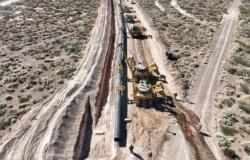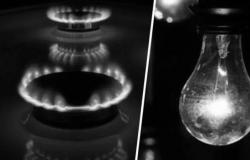More than 20 people have joined a lawsuit against BNSF Railway in connection with the Tunnel Five wildfire. Last year, that fire burned more than 500 acres near the Oregon border.
Earlier this year, Lance Douglas Brooks, a Skamania County resident affected by the Tunnel Five fire, sued BNSF for damages.
According to the initial lawsuit, Brooks was renting a home that was destroyed, along with his personal belongings, due to the fire. The document indicates that the fire displaced about 1,000 residents and destroyed 10 homes. Now, more people have been included in the case. Among the new plaintiffs is a Skamania County wine company that lost its grape crop as a result of smoke damage. Others suffered damage to their homes.
Stephen Hill is an attorney with the firm Singleton Schreiber, which represents the plaintiffs.
The firm has previously represented plaintiffs in wildfire cases, such as the Gray Wildfire that occurred in Spokane County in 2023.
“We filed the lawsuit on behalf of a client. Since then, we have been retained by a number of additional clients, so we had to file an amended complaint,” Hill said in English.
The case was started in Skamania County Superior Court but was later moved to the U.S. District Court for the Western District of Washington. The amended complaint was filed on June 13.
Hill explained that the case changed courts due to diversity of jurisdiction. In the legal field, diversity jurisdiction exists when the parties are in different states and a significant amount is at issue.
“The plaintiffs are citizens of the state of Washington. The defendant is a Delaware corporation. Because there are citizens from different states, under federal rules, the case is removable to federal court,” she explained.
Hill said the initial case was based on a report from the Washington State Department of Natural Resources that determined a train operated by BNSF caused the fire.
“According to the report, there was a very old locomotive designated BNSF with number 2322. It did not have a turbocharger and is known for causing sparks,” he explained.
The DNR report mentioned that a non-turbocharged engine is very likely to belch diesel carbon emissions out the tailpipe, which could cause a fire. He also stated that it was common practice not to use these types of engines in the Columbia River Gorge area during the summer months, due to their propensity to cause fires.
That information was provided by an employee of another railroad company who testified during the DNR investigation.
In a written statement, BNSF said the company does not comment on pending litigation, and that it is committed to reducing the risk of fires around its tracks and equipment.
The company also mentioned that they carry out extensive risk assessments, which take into account factors such as vegetation type, rainfall, relative humidity, temperature, wind speed and direction, and the type and extent of activities. of work.
“We clear brush, cease work activities with heat sources during periods of strong winds or unpredictable gusts, use spark shields, pre-moisten the work environment when necessary, and designate fire watchers so we can react quickly in case of fire,” the statement says.
BNSF also said they have two specially equipped firefighting trains, including one that was built specifically to serve the southwestern part of the state. The company also works closely with local fire departments during fire season.






